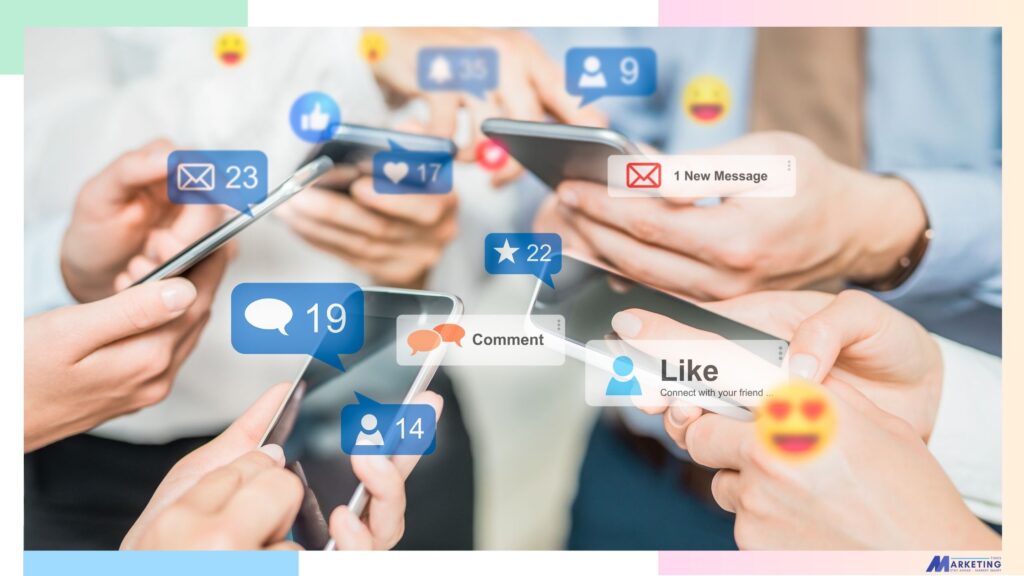Introduction
Marketing for nonprofits can be a powerful tool in driving donations, and affiliate marketing offers a new and innovative approach for nonprofits to achieve this goal. By partnering with affiliates who share their cause, nonprofits can reach new audiences and increase awareness for their mission. This article will explore eight creative ways that nonprofits can leverage affiliate marketing to generate more donations.
Table of Contents
Create a referral program (marketing for nonprofits first way)
Marketing for nonprofits can be amplified by creating a referral program that incentivizes donors to refer their friends and family to donate to the cause. This program can be promoted by affiliates to their followers, resulting in increased referrals and donations.
Nonprofits can design the referral program to offer rewards such as exclusive merchandise, discounts on future purchases, or recognition on their website or social media pages to donors who successfully refer others to donate. The program can be structured in a way that encourages donors to invite more people to support the nonprofit, such as offering higher rewards for referring a certain number of new donors.

You can use Donorbox to create the rreferal program
Affiliates play a vital role in promoting the referral program to their followers and encouraging them to refer others to donate. They can create dedicated social media posts or stories highlighting the program and its rewards, along with including links to the nonprofit’s website or donation page.
Nonprofits can also create targeted email campaigns to inform their existing donors about the program, collaborating with affiliates who have large email lists to send newsletters or dedicated emails to promote the program.
Partnering with affiliates to promote a referral program enables nonprofits to increase their reach and generate more donations. By incentivizing their supporters to invite others to contribute to their cause, nonprofits can amplify their marketing efforts and achieve their fundraising goals.
Host a fundraising challenge (marketing for nonprofits second way)
Affiliate marketing for nonprofits can be elevated by hosting a fundraising challenge, which not only engages with existing supporters but also attracts new donors. By partnering with affiliates, nonprofits can expand their reach and generate more donations for their cause.
To create a successful fundraising challenge, nonprofits can collaborate with their affiliates to design a fun and engaging event that aligns with their mission.
For instance, a nonprofit focused on breast cancer awareness and research could partner with a fitness influencer to host a virtual fitness challenge. Participants can fundraise by completing a series of fitness challenges and tracking their progress throughout the month. The challenges could include daily workouts, walking or running a certain number of miles, or completing a certain number of yoga classes.

In addition to designing a compelling challenge, nonprofits can leverage their affiliates to promote the event to their followers and networks. Affiliates can share information about the challenge on their social media accounts, blogs, and newsletters, encouraging their followers to sign up and participate.
Nonprofits can also provide affiliates with promotional materials, such as images, videos, and graphics, that they can use to promote the challenge on their platforms.
To make the challenge even more impactful, nonprofits can offer incentives and rewards to their participants. Participants who reach a certain fundraising goal could receive a special prize or recognition from the nonprofit. Nonprofits can also create a leaderboard that tracks the progress of each participant, creating friendly competition and motivating participants to raise more funds.
By leveraging affiliate marketing for nonprofits to host a fundraising challenge, they can create a fun and engaging event that attracts new donors, raises awareness about their cause, and helps them achieve their fundraising goals.
Create a social media campaign (marketing for nonprofits third way)

Social media is a powerful tool for nonprofits when you do marketing for nonprofits. It helps to reach new audiences and connect with their supporters. By partnering with affiliates who have large social media followings, nonprofits can create a campaign that encourages their followers to donate to the nonprofit.
For example, a nonprofit could partner with a food blogger to promote a fundraising campaign where donors can pledge to donate a certain amount for every healthy meal they post on social media using a specific hashtag.
Expanding on the idea of creating a social media campaign for nonprofits to drive donations, there are several creative ways to leverage social media to reach new donors and encourage them to contribute to the cause.
Nonprofits can also leverage social media to create a sense of community around their cause. For example, a nonprofit that focuses on providing clean water to developing countries could partner with a travel blogger to create a “water warriors” campaign.
The campaign could encourage participants to share photos and stories of themselves drinking water, using a specific hashtag, and pledging to donate a certain amount for each post. The blogger could then share the posts on their social media channels and help spread awareness about the nonprofit’s mission.
Utilize email marketing (marketing for nonprofits fourth way)
Marketing for nonprofits can be enhanced by utilizing email marketing to reach donors and potential donors. By partnering with affiliates who have large email lists, nonprofits can reach new audiences and drive more donations.
To maximize the effectiveness of email marketing, nonprofits need to identify the right affiliates who have a significant email list with an engaged audience interested in supporting their cause. Nonprofits can collaborate with these affiliates to promote a donation drive through targeted email campaigns, highlighting their mission, impact, and specific donation goals.
To incentivize donors, nonprofits can offer exclusive content such as e-books, digital downloads, or other resources that align with their mission. For instance, a nonprofit focused on environmental conservation could offer a free e-book with tips for sustainable living to donors who contribute a certain amount.
This not only encourages donations but also helps educate donors on the organization’s mission and values, strengthening the relationship between the donor and the nonprofit.

Segmenting the email list based on donor behavior and preferences is another effective strategy. By understanding what motivates donors to give, nonprofits can craft targeted messages that resonate with them.
For example, a nonprofit could segment its email list by the type of campaign that resonates with each donor, such as education, healthcare, or environmental causes. This personalized approach ensures that donors receive relevant content that aligns with their interests and values, increasing the likelihood of continued support for the nonprofit’s cause.
Incorporating affiliate marketing for nonprofits into their email marketing strategy can have a significant impact on their fundraising efforts. By partnering with affiliates who have a significant email list, nonprofits can expand their reach and drive more donations.
Providing exclusive content and segmenting the email list based on donor preferences further enhances the effectiveness of the email marketing campaign. With these strategies, nonprofits can create targeted email campaigns that effectively communicate their mission, values, and specific donation goals to a larger audience, ultimately leading to increased support for their cause.
Create a matching gift campaign (marketing for nonprofits fifth way)
Another way to leverage affiliate marketing for nonprofits is to create a matching gift campaign, where a corporate partner agrees to match donations up to a certain amount. By partnering with affiliates who have large audiences, nonprofits can amplify their message and reach new donors who are passionate about their cause. For instance, a nonprofit could partner with a lifestyle influencer to promote a matching gift campaign with a fashion brand that matches donations up to $10,000.
To ensure the success of the matching gift campaign, nonprofits need to make it easy for donors to participate and create a sense of urgency. Collaborating with their affiliates, nonprofits can promote the campaign on social media, email newsletters, and other channels to spread the word and encourage more donations.

The affiliate in this case, an influencer, can post about the campaign and encourage their followers to donate, emphasizing that their donation will be matched by the corporate partner. The nonprofit can create custom graphics or videos to share on social media, which the influencer can then share with their followers.
To make the campaign even more engaging, nonprofits can set a fundraising goal and track their progress in real-time. This can create a sense of urgency among donors and encourage them to donate before the deadline. Nonprofits can also create a leaderboard to highlight the top donors or teams, inspiring healthy competition and driving even more donations.
By leveraging affiliate marketing for nonprofits to create a matching gift campaign, they can increase their donations by leveraging the generosity of corporate partners. Partnering with affiliates who have large audiences enables nonprofits to amplify their message and reach new donors who are passionate about their cause. With a compelling campaign and effective promotion through affiliate marketing, nonprofits can achieve their fundraising goals and create a lasting impact.
Leverage influencer marketing (marketing for nonprofits sixth way)
Influencer marketing for nonprofits is a popular way to reach new audiences and drive donations. By partnering with influencers who are passionate about their cause, nonprofits can create engaging content that encourages their followers to donate.
For example, a nonprofit could partner with a beauty influencer to promote a campaign where donors who contribute a certain amount receive a limited edition lipstick designed by the influencer with proceeds going to the nonprofit. The influencer could use their platform to promote the campaign, encouraging their followers to donate and support the cause. They could also create content that showcases the limited edition lipstick and explains how the proceeds will be used to make a positive impact.

Similarly, a nonprofit could partner with a fitness influencer to create a campaign where donors who contribute a certain amount receive a virtual workout class taught by the influencer. The influencer could use their platform to promote the campaign and encourage their followers to donate, while also creating content that showcases their fitness expertise and highlights the impact that the nonprofit is making in their community.
In both cases, the influencer’s endorsement of the nonprofit and its campaign can help to build trust and credibility with their audience, encouraging them to donate and support the cause. By leveraging the reach and influence of these social media influencers, nonprofits can effectively engage with new audiences and drive donations.
Host a virtual auction (marketing for nonprofits seventh way)
Affiliate marketing for nonprofits can be utilized to host a virtual auction, driving donations by expanding their reach and tapping into new audiences. Virtual auctions provide nonprofits with an opportunity to offer unique items or experiences that supporters may not be able to find elsewhere. By partnering with affiliates, nonprofits can broaden their reach and motivate bidders to donate more.

Partnering with affiliates who have a strong online presence can help promote the virtual auction to a wider audience. Affiliates can use their social media channels, email lists, and other online platforms to spread the word about the auction and encourage their followers to bid. This not only drives more bids but also increases the visibility of the nonprofit’s mission to potential new supporters.
In addition, virtual auctions can be a fun and engaging way for nonprofits to interact with their supporters. They provide a platform for nonprofits to showcase their mission and impact, while also giving supporters a chance to get involved and make a difference. Nonprofits can use the auction as an opportunity to connect with their supporters, share their stories, and build relationships with potential new donors.
Hosting a virtual auction is an innovative way for nonprofits to leverage affiliate marketing to drive donations. By partnering with creative affiliates and offering unique experiences, nonprofits can attract more bidders and donors, while also raising awareness for their mission. Virtual auctions provide nonprofits with an opportunity to engage with their supporters, motivate donations, and create lasting impact.
Partner with a retailer (marketing for nonprofits eighth way)
Nonprofits can partner with a retailer to offer a percentage of sales to the nonprofit. Partnering with a retailer can be an effective way for nonprofits to drive donations and raise awareness for their cause. By partnering with a retailer, nonprofits can offer their supporters a way to make a donation while shopping for products they need or want. To make this work, nonprofits can partner with retailers who are aligned with their cause or mission, and offer a percentage of sales to the nonprofit for each purchase made by a supporter.

In order to leverage this strategy, nonprofits can also partner with affiliates who have a large following and are willing to promote the retailer to their audience. Affiliates can help spread the word about the partnership, encouraging their followers to make purchases from the retailer and letting them know that a portion of the proceeds will be donated to the nonprofit.
For example, a nonprofit focused on environmental conservation could partner with a retailer that sells eco-friendly products. The nonprofit could offer to promote the retailer to its supporters, and in return, the retailer could donate a percentage of sales to the nonprofit.
By partnering with the right retailer and leveraging the power of affiliates, nonprofits can drive donations and raise awareness for their cause, while also providing their supporters with a way to make a difference through their everyday purchases.
In conclusion, affiliate marketing can be a powerful tool for nonprofits looking to drive donations and raise awareness for their mission. By thinking outside the box and partnering with creative affiliates, nonprofits can create engaging campaigns that attract new donors and generate more support for their cause.


